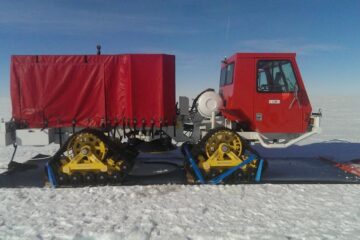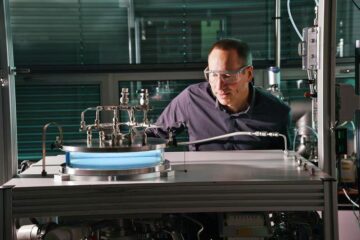Commission calls on EU scientific and industrial communities to apply for €5 billion research funding

The Commission will publish the first calls for proposals for the 6th EU Research Framework Programme (FP6 2002-2006). Research centres, universities and enterprises are invited to make the most of the first batch of 49 calls, covering a total of €5 billion. Most of this first allocation (€3.4 billion) will be dedicated to the seven main FP6 priorities, ranging from life sciences to aeronautics, from information society technologies to energy and transport. 70% of this funding will focus on new funding schemes such as Networks of Excellence and Integrated Projects, and at least 15% overall will go to small and medium-sized enterprises (SMEs).
“The new programme is now taking off,” said European Research Commissioner Philippe Busquin. “It is time to start working on the new priorities and with the new instruments. European research players have already sent in 12,000 expressions of interest – promising ideas that helped us shape the work programmes. But now it is for real. I expect the Framework Programme to be a major catalyst in mobilising the European scientific and industrial communities, as well as Member and Associated States, including the candidate countries. I invite researchers and entrepreneurs to join in this endeavour and to help us make the Framework Programme a success.”
Within these first calls, €460 million will also be devoted to policy-oriented research, special activities involving SMEs, special international co-operation activities, and support for the co-ordination of national activities. €990 million will be devoted to human resources and mobility, infrastructures and the science/society dialogue. €69 million will go to nuclear research. Deadlines for the calls, most of which will be in March and April 2003, are specified in the calls for proposals.
FP6 priorities reflect the result of a thorough consultation with Member State authorities as well as with EU scientific and industrial community. They address major scientific, industrial and societal challenges while reflecting the EU’s overall ambition to concentrate on fewer priorities and activities. The aim is to gather the necessary resources available for building up the “critical mass” required for success in the competitive international environment.
The funding instruments
FP6 will give priority to two new funding instruments. The long-term objective for Networks of Excellence is to forge lasting co-operation between those universities and research centres that excel in a particular field. Integrated Projects have a more mid-term and market focus. Other revamped funding schemes include “Specific targeted research projects”, “Co-ordination actions” and “Specific support actions”. In contrast to the Integrated Projects, “Specific targeted research projects” will support smaller-scope research projects. “Co-ordination actions” will encourage networking and the co-ordination of research and innovation activities. “Specific support actions” are accompanying measures to support the implementation of FP6.
Annex: What will the Commission be funding?
Life sciences, genomics and biotechnology for health
Genomics and biotechnology offer opportunities for advancing our understanding of life, improving health, and combating disease, including cancer, diabetes, cardiovascular and other diseases.
Information Society technologies
Strategic objectives aim to reinforce European strengths (for instance in mobile and wireless systems, to exploit new opportunities and respond to emerging needs (e.g. security and dependability), and to ensure the parallel evolution of technology and applications (e.g. in ehealth and ebusiness).
Nano-technologies and nano-sciences
Nanotechnology deals with nano-scale (e.g. extremely small) products and production processes. Multi-functional knowledge-based materials are critical drivers of innovation, and new production processes and devices are key to improved competitiveness and sustainable development. Amongst the calls in this area, there is a special one for SMEs. The objective is to promote the shift of the industrial sectors which are traditionally less research-intensive to high-added-value sectors. Innovations are expected in a wide range of sectors, such as textiles, building, wood, pulp and paper, leather and footwear, bio-medical, control systems, etc.
Aeronautics and space
FP6 addresses the four main challenges of the sector: competitiveness, environmental impact, safety, and the capacity of the air transport system. For example, as far as safety is concerned the objective is ‘zero hijacking’. Regarding capacity, a key objective is to guarantee flight punctuality. In the field of space, the calls cover three key research topics: navigation and positioning by satellite for the Galileo programme, Global Monitoring for the Environment and Security (GMES), and satellite telecommunications.
Food quality and safety
The emphasis on the food chain focuses on consumer needs and food-related health issues with particular attention to farm production systems, while comprehensively exploiting new technologies such as genomics. Issues addressed range from understanding the complex interactions between food intake, metabolism and disease in humans such as allergy and asthma, lipid metabolism, possible risks from heat- treated foods and risk assessment and communication. It will include research on food safety issues such as the impact of food borne disease on human health, for example pathogen free production systems, and research on prions.
Sustainable Energy Systems
The focus will be on integrated demonstration actions in the areas of the cost-effective supply of renewable energies and their large-scale integration into energy supplies, eco-buildings and alternative motor fuels. Research initiatives for the medium to longer term are aimed at significantly reducing the costs of new and renewable energy sources and hydrogen as a new energy carrier, whilst also reducing the environmental impact of conventional energy sources through the development of CO2 capture and sequestration technologies.
Sustainable surface transport
Firstly, an all out effort will be made to cut pollution, both in the automotive sector and, for the first time, also pollution from ships. Furthermore, increased safety for road transport, trains and ships will be highlighted. This will include safer structures and innovative maintenance procedures aimed at avoiding major maritime disasters. And finally, a strong technological effort will be made to enhance competitiveness of the European shipbuilding industry.
Global change and ecosystems
Research will focus on renewable energy, transport, and sustainable management of Europe’s land and marine resources. This will be complemented by the development of advanced methods for risk assessment and methods of appraising environmental quality, including relevant pre-normative research on measurements and testing.
Citizens and governance
This priority will be the focal point for research for social sciences and humanities.
Policy support
The overall objective is to underpin the formulation and implementation of EU policies. The approach is “demand-driven”, based on concrete aspects of evolving EU policy needs.
The set of initial priorities will concentrate on:
- Sustainable management of Europe’s natural resources;
- Providing health, security and opportunity to the people of Europe;
- Underpinning the economic potential and cohesion of a larger and more integrated European Union.
Anticipating scientific and technological needs
To help European scientists take a leading position in developing the latest scientific opportunities, this new activity will support research in ’New and emerging science and technology’ – NEST. NEST aims to support unconventional and visionary research with the potential to open new fields for European science and technology. The first calls for this area will be published early next year.
SMEs
Initiatives that may be pursued across science and technology issues that are covered by EU research policy will take the form of ‘co-operative’ and ‘collective’ research activities.
International co-operation
FP6 foresees specific measures in support of International Co-operation (INCO) with third countries in the Mediterranean, Western Balkans, Russia and the Community of Independent States, and the developing countries (ACP, Asia and Latin America). They cover issues linked to safety and security of economic and social development, in particular environmental conservation, human health and relevant public health policy, food security and promotion of development policies with a view to sustainable economic growth, political and population stability.
Support for the co-ordination of activities
The ERA-NET scheme aims to co-ordinate research activities carried out at national and regional level, i.e., “research programmes strategically planned“, in the whole field of science and technology, and at supporting strategic activities developed by programme managers.
Human resources and mobility
The aim is to maximise the potential of the entire population, in particular women and young researchers. Calls concern fellowships, return and reintegration grants, chairs, conferences, awards, training courses and networks.
Infrastructures
This focuses on large-scale research installations, databases, integrated small research facilities, communication networks, networks of computing facilities, as well as centres of competence. Calls address trans-national access to individual research infrastructures, integrating activities through networks of research infrastructures.
Another major and innovative objective is to provide Europe with a Grid-empowered telematics infrastructure able to deeply change the way research is performed. Grid technology is driving the latest advances in distributed computing. It provides a seamless integration of resources of computer hard- and soft-ware, which may be distributed across the world, and gives users access to hitherto unrealised processing power and storage capacity. The concept has essentially been made possible by the concurrent advances in networking technologies, which allow transmission speeds of over 10 Gigabits per second.
Science and society
The calls cover showcase activities for the European Science Week to promote public scientific awareness and demonstrate its relevance to our daily life. They also concern the René Descartes Prize for outstanding trans-national collaborative research, and opportunities to create and develop new networks and other initiatives to support the core objectives on scientific advice and governance, risk, ethics, public awareness and women in science. Research in this field will support the Commission’s Science and Society Action Plan.
Research and training in the nuclear field
EURATOM research and training will play a key role in promoting the sustainable use of nuclear energy. Research on fusion energy will help launch the construction of the International Thermonuclear Experimental Reactor (ITER) in the next few years, an essential step in bringing fusion energy to practical reality. Research will also tackle the management of radioactive waste, radiation protection, and nuclear safety.
Media Contact
Weitere Informationen:
http://www.cordis.lu/fp6Alle Nachrichten aus der Kategorie: Förderungen Preise
Neueste Beiträge

Merkmale des Untergrunds unter dem Thwaites-Gletscher enthüllt
Ein Forschungsteam hat felsige Berge und glattes Terrain unter dem Thwaites-Gletscher in der Westantarktis entdeckt – dem breiteste Gletscher der Erde, der halb so groß wie Deutschland und über 1000…

Wasserabweisende Fasern ohne PFAS
Endlich umweltfreundlich… Regenjacken, Badehosen oder Polsterstoffe: Textilien mit wasserabweisenden Eigenschaften benötigen eine chemische Imprägnierung. Fluor-haltige PFAS-Chemikalien sind zwar wirkungsvoll, schaden aber der Gesundheit und reichern sich in der Umwelt an….

Das massereichste stellare schwarze Loch unserer Galaxie entdeckt
Astronominnen und Astronomen haben das massereichste stellare schwarze Loch identifiziert, das bisher in der Milchstraßengalaxie entdeckt wurde. Entdeckt wurde das schwarze Loch in den Daten der Gaia-Mission der Europäischen Weltraumorganisation,…





















